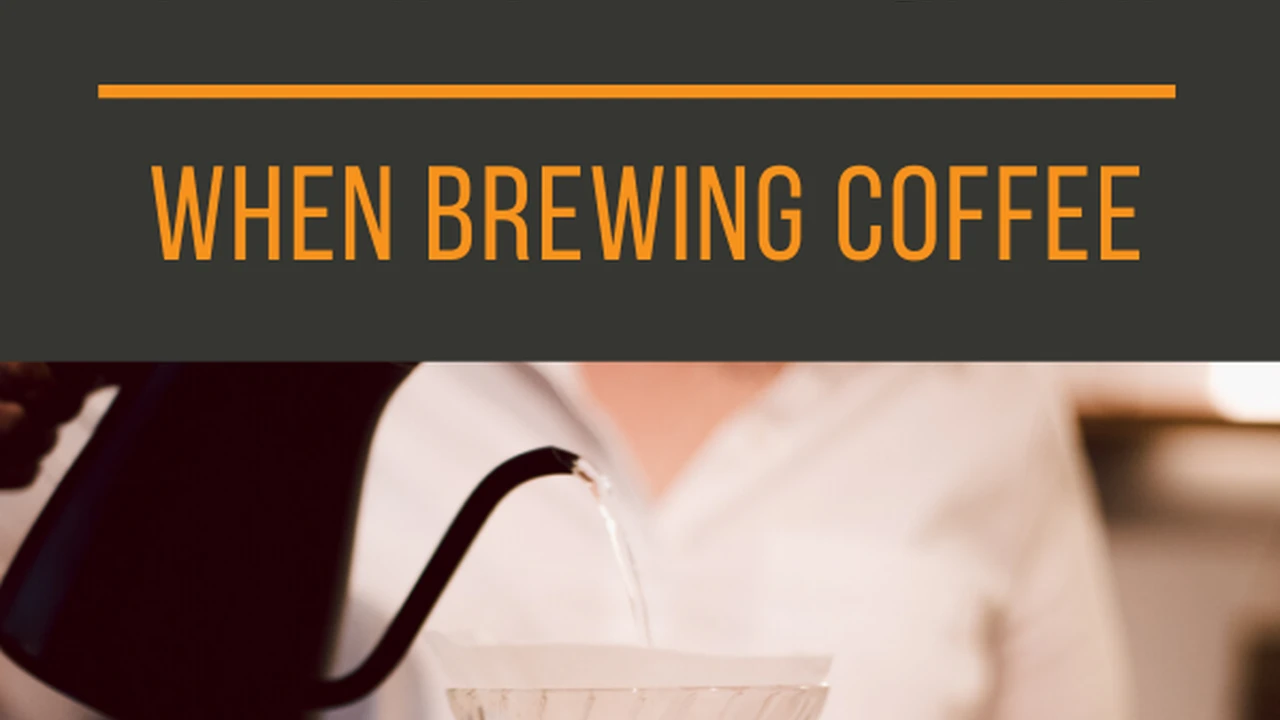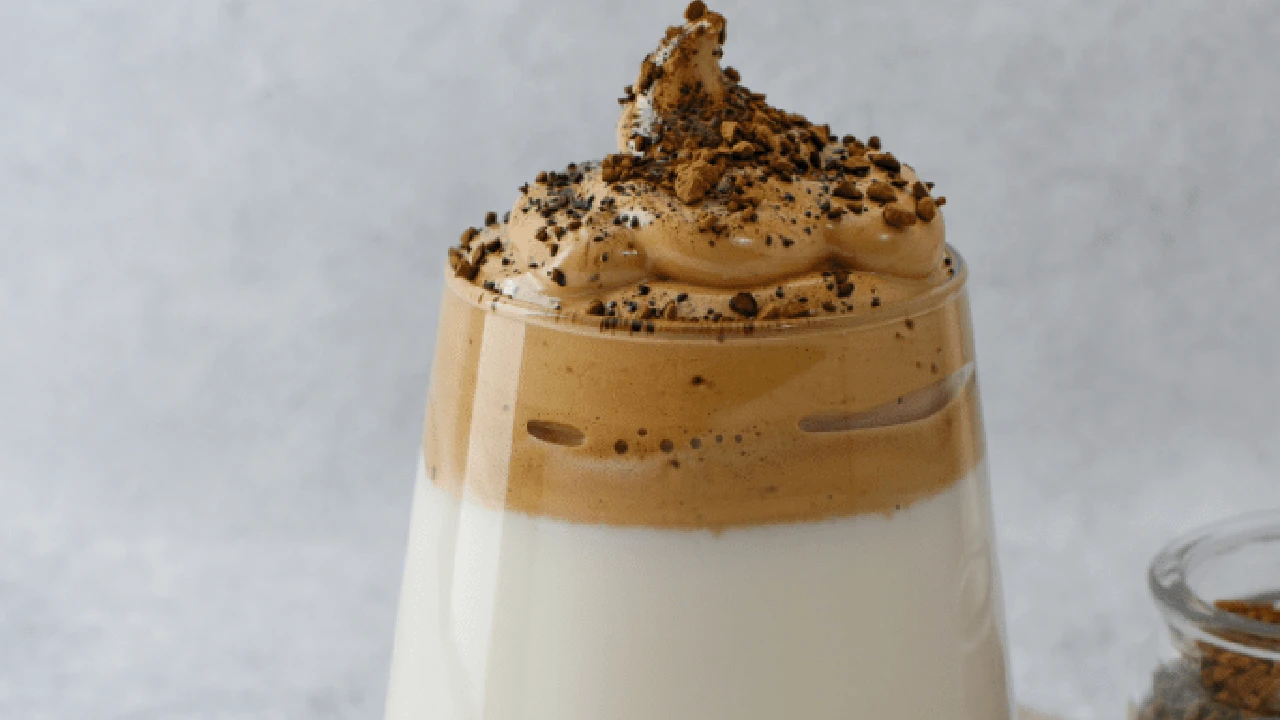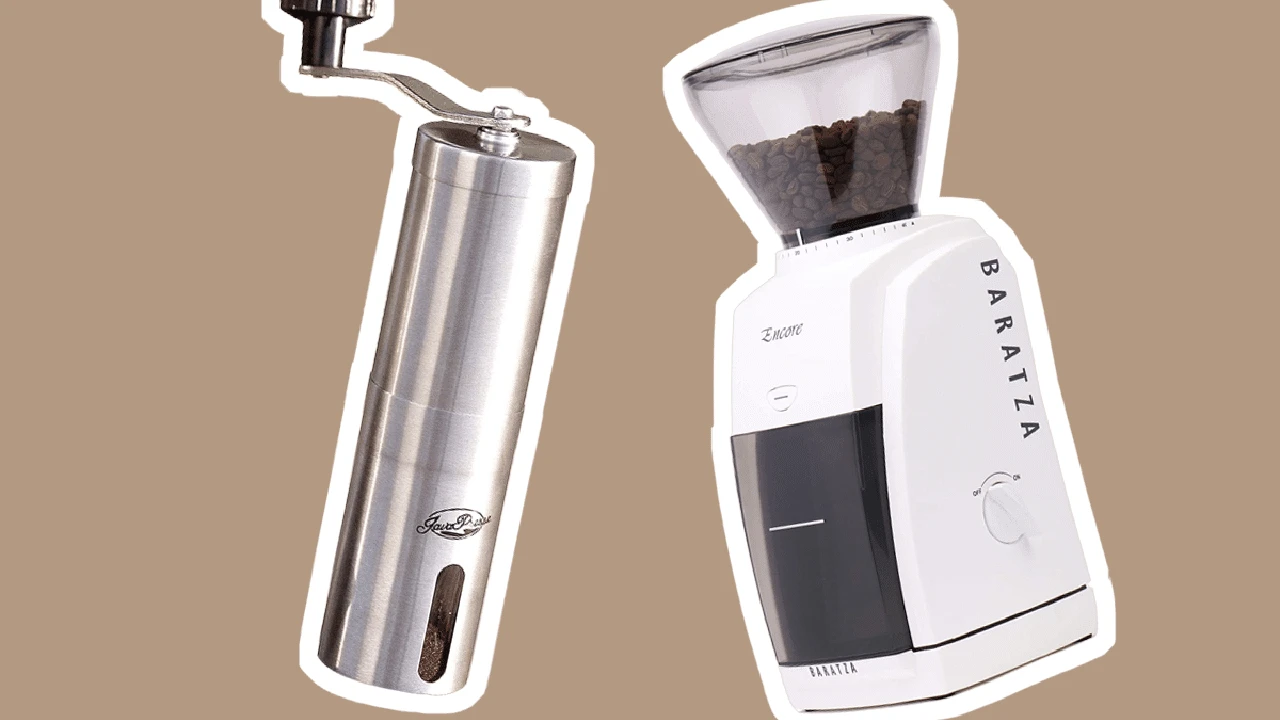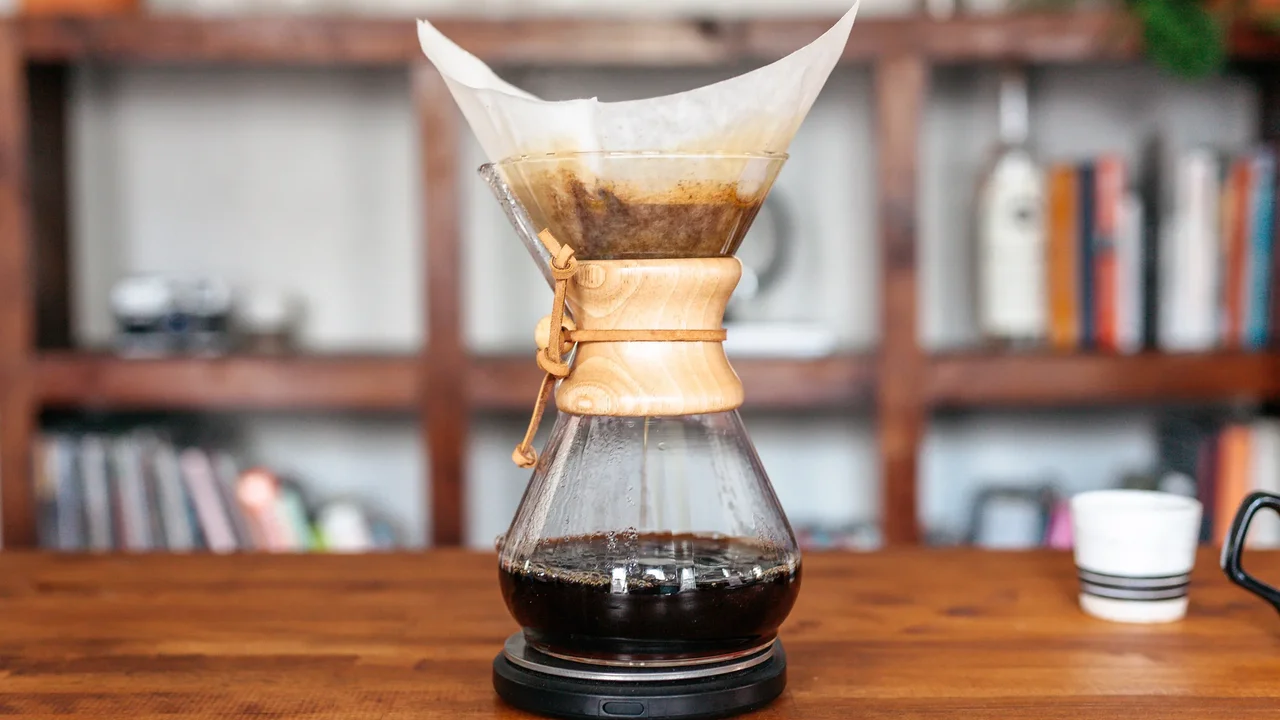Comparing Coffee Filters Paper vs Metal vs Cloth
Understand the differences between paper, metal, and cloth coffee filters. Learn how each affects taste and cleanup.
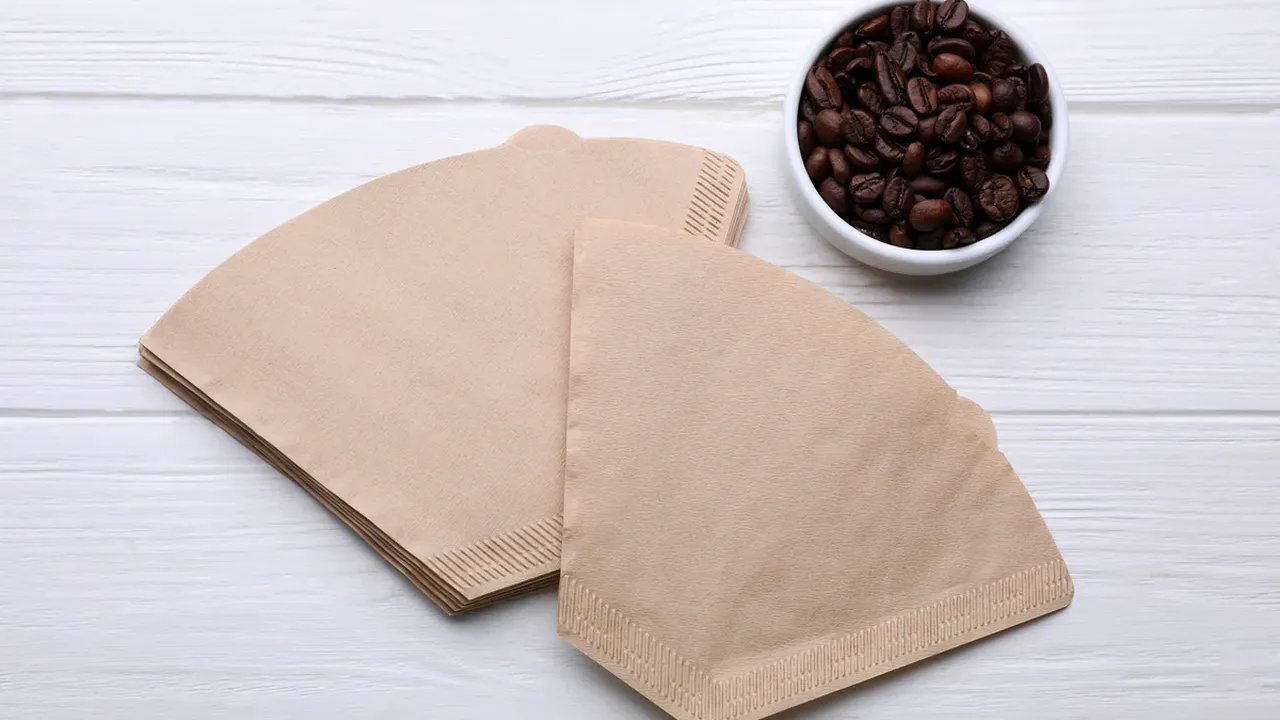
Comparing Coffee Filters Paper vs Metal vs Cloth
Hey coffee lovers! Ever wondered how that little filter impacts your daily brew? It's a small component, but it plays a massive role in the final taste, body, and clarity of your coffee. Today, we're diving deep into the world of coffee filters, breaking down the pros and cons of paper, metal, and cloth options. We'll look at how each affects your cup, discuss cleanup, and even recommend some specific products to help you choose the best one for your brewing style.
Paper Coffee Filters The Classic Choice for Clarity
Paper filters are probably what most of us picture when we think about coffee brewing. They're ubiquitous, affordable, and incredibly effective at what they do: producing a clean, bright cup of coffee. But not all paper filters are created equal, and their impact goes beyond just holding the grounds.
How Paper Filters Affect Your Coffee Taste and Body
The primary characteristic of paper filters is their ability to trap fine sediment and oils. This results in a very clean cup with a bright, crisp flavor profile. If you love a coffee that's free from any grittiness and allows the nuanced flavors of the bean to shine through, paper is your go-to. The downside? They also absorb some of the coffee's natural oils, which contribute to body and mouthfeel. So, while you get clarity, you might sacrifice a bit of richness compared to other filter types.
Types of Paper Filters Bleached vs Unbleached
You'll typically find two main types: bleached and unbleached. Bleached filters (often white) have been processed to remove lignin, which can impart a papery taste. Unbleached filters (brown) retain more of their natural wood fibers and might require a more thorough rinse before brewing to avoid any papery notes in your coffee. For most home baristas, a good rinse of any paper filter with hot water before adding coffee grounds is a crucial step to eliminate off-flavors and preheat your brewing device.
Cleanup and Environmental Impact of Paper Filters
Cleanup with paper filters is a breeze. Just lift the filter, grounds and all, and toss it in the compost or trash. Super convenient! However, this convenience comes with an environmental cost. They're single-use, contributing to waste. While many are compostable, the sheer volume of paper filters used globally is significant. Some brands are working on more sustainable options, but it's something to consider if environmental impact is a concern for you.
Recommended Paper Filters for Various Brewing Methods
- Hario V60 Paper Filters (Bleached or Unbleached): Perfect for pour-over enthusiasts. These conical filters are designed to fit the Hario V60 dripper, promoting even extraction and a clean cup. A pack of 100 for the 02 size typically costs around $8-$12 USD.
- Chemex Bonded Filters (Pre-folded Squares or Circles): Essential for the Chemex brewer. These filters are significantly thicker than standard paper filters, leading to an exceptionally clean, sediment-free cup with a lighter body. A pack of 100 can range from $15-$25 USD.
- Melitta Cone Coffee Filters (Standard Cone Shape): Great for classic drip coffee makers. These are widely available and affordable, offering reliable filtration for everyday brewing. A pack of 100 for the #4 size is usually $3-$6 USD.
- Aeropress Paper Filters: Small, circular filters specifically for the AeroPress. They provide a very clean cup and are incredibly efficient. A pack of 350-700 filters is typically $5-$10 USD, making them very cost-effective per brew.
Metal Coffee Filters The Reusable Option for Full Body
Metal filters, often made from stainless steel mesh, offer a completely different brewing experience. They're designed for reusability and allow more of the coffee's natural oils and fine particles to pass through, resulting in a richer, fuller-bodied cup.
How Metal Filters Affect Your Coffee Taste and Body
If you prefer a coffee with more texture, a heavier mouthfeel, and a bolder flavor, metal filters are an excellent choice. Because they don't absorb oils, you'll get more of the coffee's inherent richness and a more pronounced flavor profile. However, this also means you might find some fine sediment in your cup, which some people love for its 'chewiness' and others dislike for its grittiness. It's a trade-off between clarity and body.
Durability and Longevity of Metal Coffee Filters
One of the biggest advantages of metal filters is their durability. They're designed to last for years, making them a one-time investment. This also makes them a more environmentally friendly option compared to single-use paper filters. They're robust and can withstand daily use without degrading.
Cleanup and Maintenance of Metal Filters
Cleanup for metal filters is a bit more involved than paper. You'll need to rinse them thoroughly after each use to prevent coffee oils from building up and becoming rancid, which can negatively impact future brews. Occasionally, a deeper clean with soap and water, or even a descaling solution, might be necessary to remove stubborn oil residue. While not as simple as tossing a paper filter, the reusability often outweighs the extra cleaning effort for many.
Recommended Metal Filters and Their Applications
- Able Kone Coffee Filter (for Chemex): This stainless steel cone filter is designed to fit Chemex brewers, offering a full-bodied alternative to paper. It allows more oils through, resulting in a richer cup. Priced around $60-$75 USD.
- Fellow Prismo (for AeroPress): While not strictly a filter, the Prismo is an attachment for the AeroPress that includes a reusable metal filter. It creates a pressure-actuated valve, allowing for espresso-style coffee and no-drip immersion brewing. It's a game-changer for AeroPress users. Costs about $30-$35 USD.
- Reusable K-Cup Filters (for Keurig Machines): For Keurig users looking to reduce waste and use their own coffee, these metal mesh K-Cup filters are a must-have. They allow you to brew any ground coffee in your Keurig. A pack of 2-4 can be found for $10-$20 USD.
- Pour Over Coffee Drippers with Built-in Metal Filters (e.g., Bodum Pour Over): Many pour-over drippers now come with integrated fine mesh metal filters, eliminating the need for paper. These are great for a balanced cup with good body. A complete Bodum pour-over system with a carafe and metal filter might cost $25-$40 USD.
Cloth Coffee Filters The Traditional and Eco-Friendly Choice
Cloth filters, often made from cotton or hemp, are a less common but historically significant option. They offer a unique balance between the clarity of paper and the body of metal, and they're highly sustainable.
How Cloth Filters Affect Your Coffee Taste and Body
Cloth filters tend to produce a very clean cup, similar to paper, but with a slightly fuller body. They effectively trap fine sediment, but unlike paper, they allow some of the coffee's oils to pass through, contributing to a smoother, richer mouthfeel. Many enthusiasts describe coffee brewed with cloth filters as having a 'silky' texture and a very clean finish without the papery taste sometimes associated with paper filters.
Durability and Lifespan of Cloth Coffee Filters
With proper care, cloth filters can last for many months, even up to a year or more, depending on frequency of use. They are a reusable and eco-friendly alternative to paper. However, they do require more diligent care than metal filters to prevent bacterial growth and rancidity.
Cleanup and Storage of Cloth Filters
This is where cloth filters require the most attention. After each use, they must be thoroughly rinsed to remove all coffee grounds and oils. Many users recommend storing them in a container of water in the refrigerator between uses to prevent them from drying out and developing off-flavors or mold. If they do dry out, a quick boil can often refresh them. Regular boiling or soaking in a mild cleaning solution (like baking soda and water) is also recommended to remove built-up oils. This extra effort is why they're not as popular as paper or metal for casual brewers, but for those seeking a specific cup profile and sustainability, it's worth it.
Recommended Cloth Filters and Their Niche Uses
- CoffeeSock Reusable Coffee Filters (for various brewers): CoffeeSock makes organic cotton filters for a wide range of brewing devices, including pour-over cones (V60, Chemex), cold brew systems, and even AeroPress. A single filter for a pour-over cone might cost $10-$15 USD.
- Filtron Cold Brew System Filters: While the Filtron system is a complete cold brew setup, its core filtration relies on a reusable cloth filter. This system is renowned for producing incredibly clean and smooth cold brew concentrate. The entire system can cost around $100-$150 USD, with replacement cloth filters available for $10-$15 USD.
- Vietnamese Coffee Phin Filters (with cloth inserts): Traditional Vietnamese coffee makers (Phin) often use a small metal press, but some variations incorporate a cloth filter for an even cleaner, slower drip. These are typically part of a complete Phin set, which can be found for $15-$30 USD.
Choosing Your Ideal Coffee Filter Considerations for Home Baristas
So, with all these options, how do you pick the right one for your home brewing setup? It really comes down to a few key factors:
Taste Preference and Coffee Body
Do you prefer a super clean, bright cup with minimal sediment? Go for paper. Do you crave a rich, full-bodied brew with some texture? Metal is your friend. Looking for a balance, with good clarity but still some body? Cloth might be your sweet spot.
Convenience and Cleanup Routine
If speed and minimal cleanup are your top priorities, paper filters are unbeatable. If you don't mind a bit more rinsing for the sake of reusability, metal is a great choice. If you're dedicated to a specific flavor profile and willing to put in the effort for meticulous cleaning and storage, cloth filters are rewarding.
Environmental Impact and Sustainability
For the eco-conscious brewer, reusable options like metal and cloth filters are far superior to single-use paper. While paper filters are often compostable, reducing waste at the source is always the best approach.
Cost and Long-Term Investment
Paper filters have a low upfront cost but a continuous recurring expense. Metal and cloth filters have a higher initial investment but save money in the long run as they are reusable. Consider your brewing frequency when evaluating the long-term cost.
Ultimately, there's no single 'best' coffee filter. The ideal choice depends on your personal preferences, your brewing method, and your lifestyle. Many home baristas even keep a variety of filters on hand to experiment and match the filter to the specific coffee bean or their mood of the day. Happy brewing!
:max_bytes(150000):strip_icc()/277019-baked-pork-chops-with-cream-of-mushroom-soup-DDMFS-beauty-4x3-BG-7505-5762b731cf30447d9cbbbbbf387beafa.jpg)



